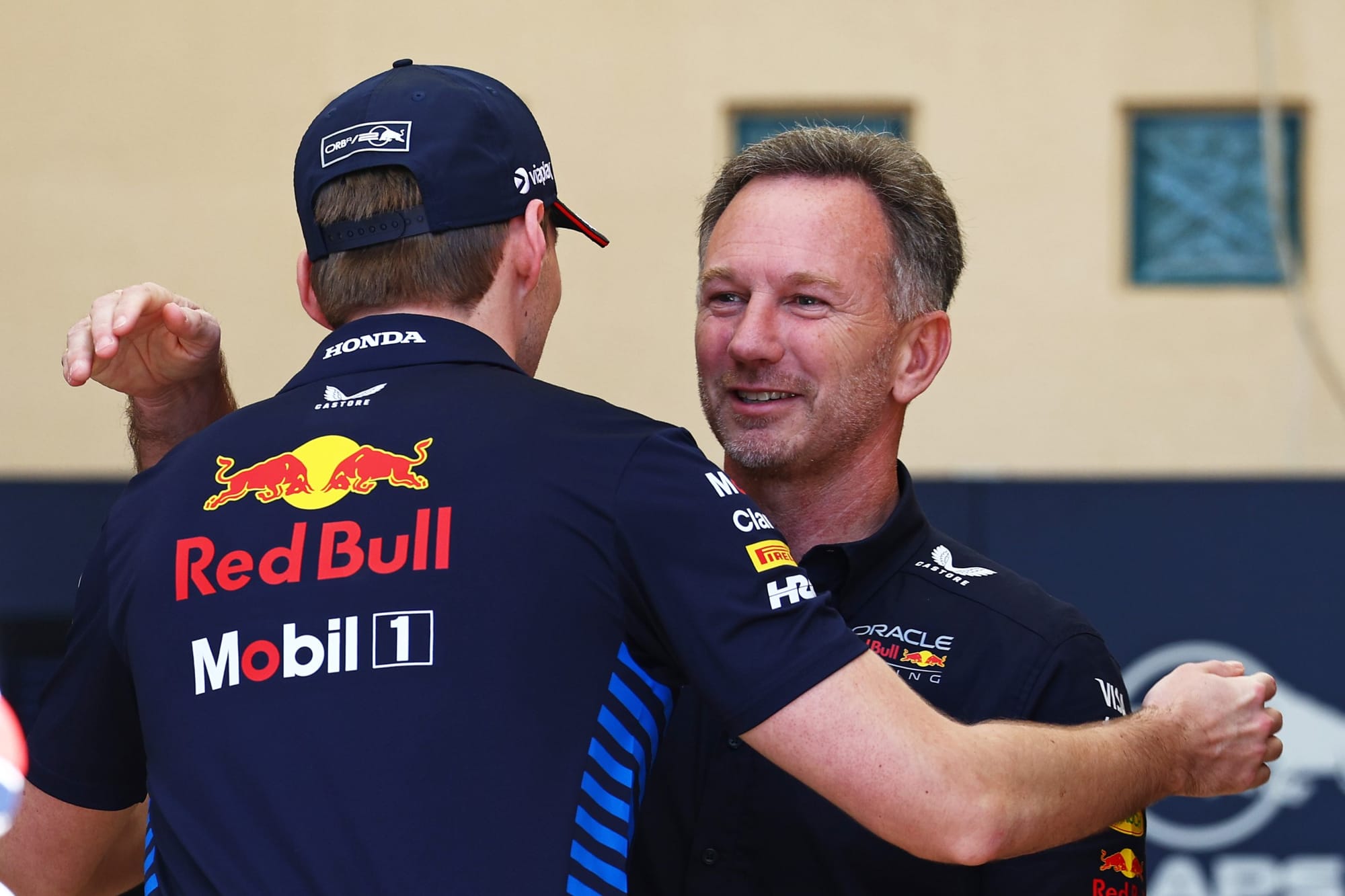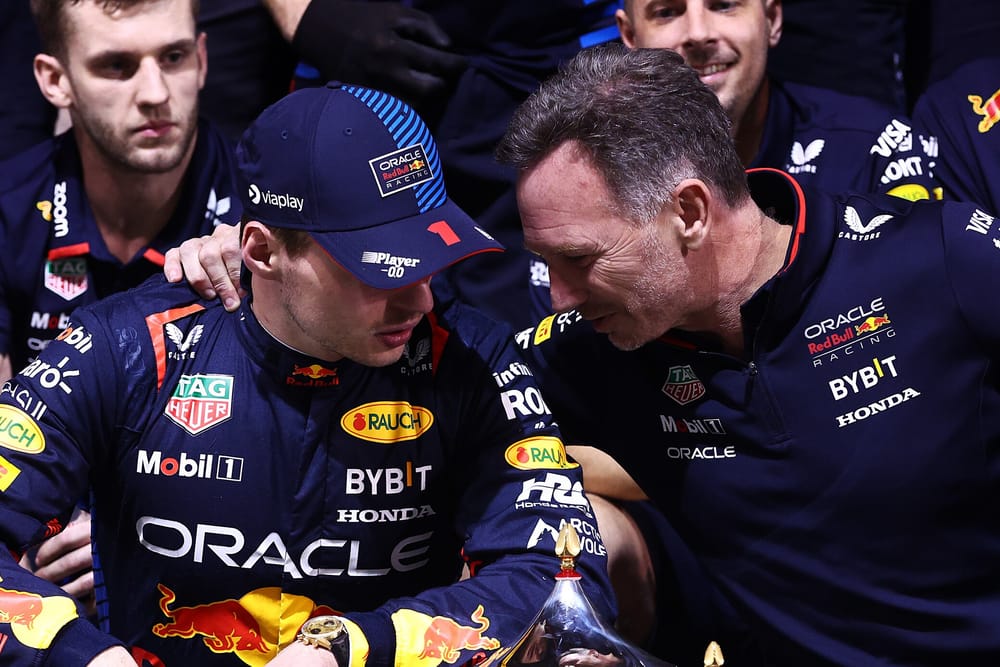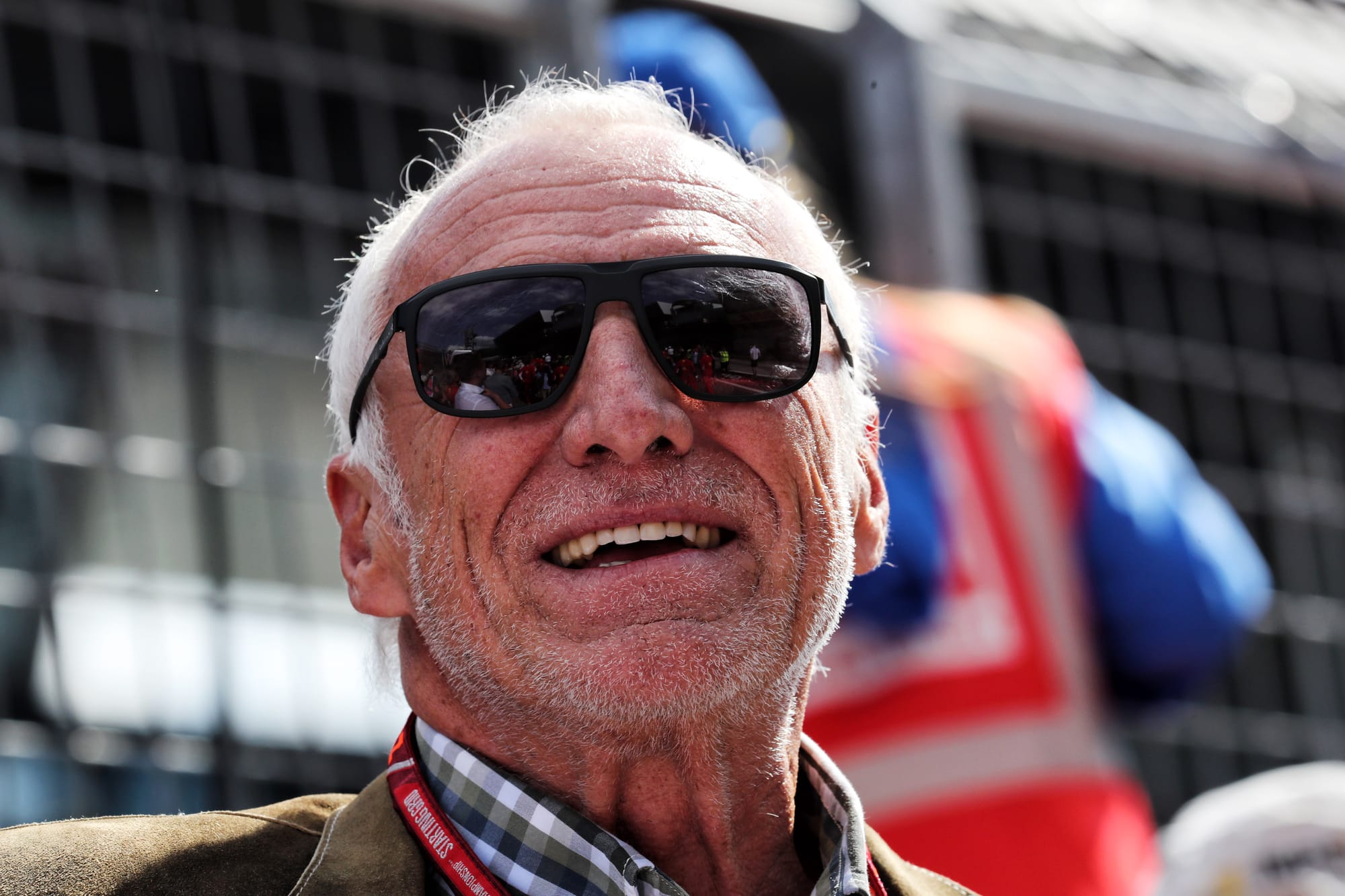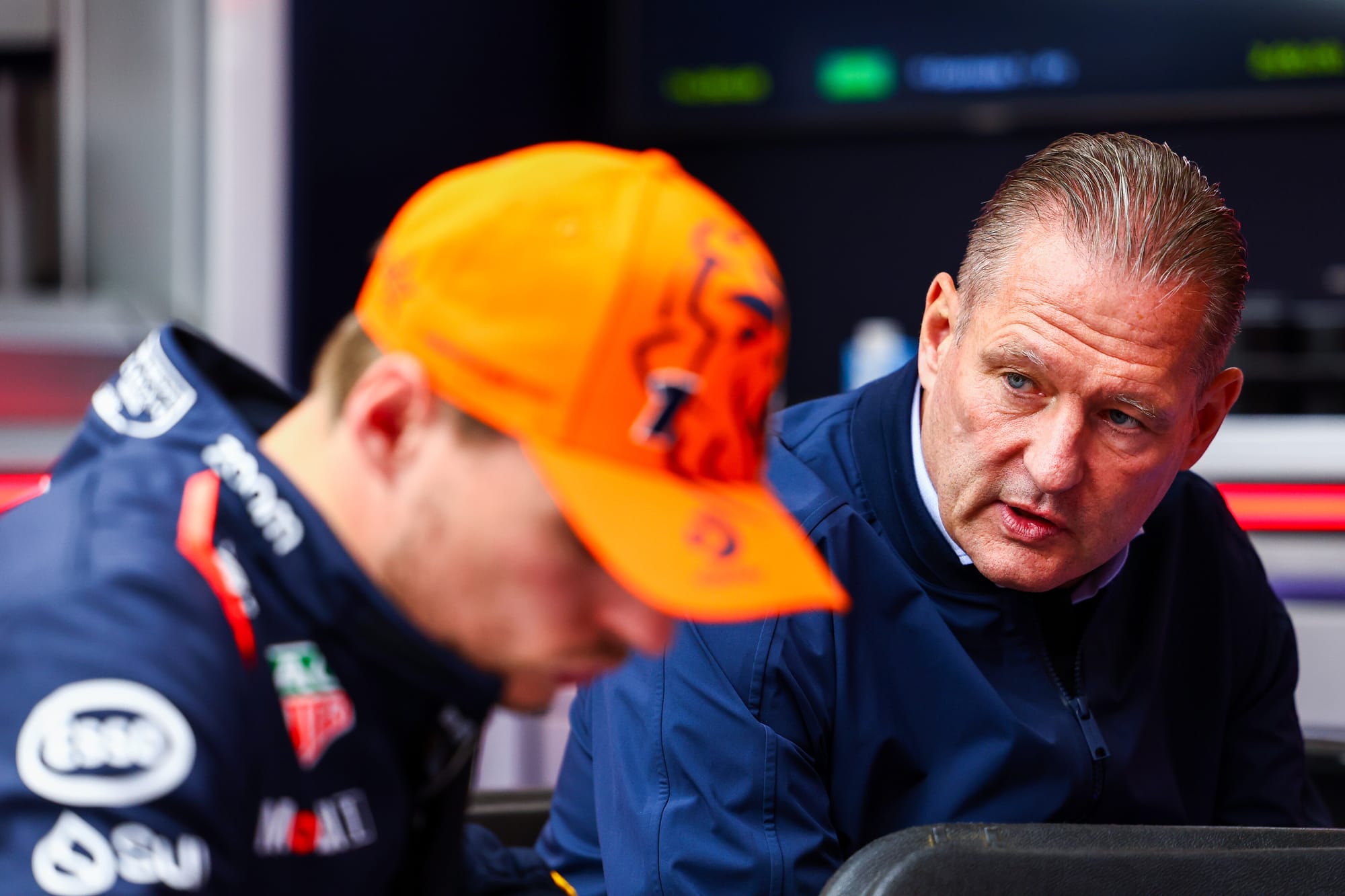Up Next

What would a post-Christian Horner Red Bull Formula 1 team look like? What would be the impact of Max Verstappen leaving the team to drive for a rival? If it came to a choice, who is more important to Red Bull: Horner or Verstappen?
Taking the last question first, it depends if we are talking short term or long. Verstappen would almost certainly carry on dominating races for the team for the next year or two even if Horner were absent. But after that?
The structure which provides those cars and the race team which runs them is not as effective as it is by accident. Key recruitment and investment choices, firm direction and leadership are needed to fully exploit the fuel of money on which it runs to keep it at the front.
A rudderless team, no matter how well-funded, would gradually lose the momentum necessary to provide cars in which even a genius-level driver like Verstappen needs to succeed.
If Horner were to leave Red Bull, the challenge of replacing him is that he has grown organically with the team as it has expanded from the small entity which took over the former Stewart Grand Prix and Jaguar Racing base at Milton Keynes in the mid-2000s. His vision is stitched-in to the team’s very structure as it has expanded exponentially.
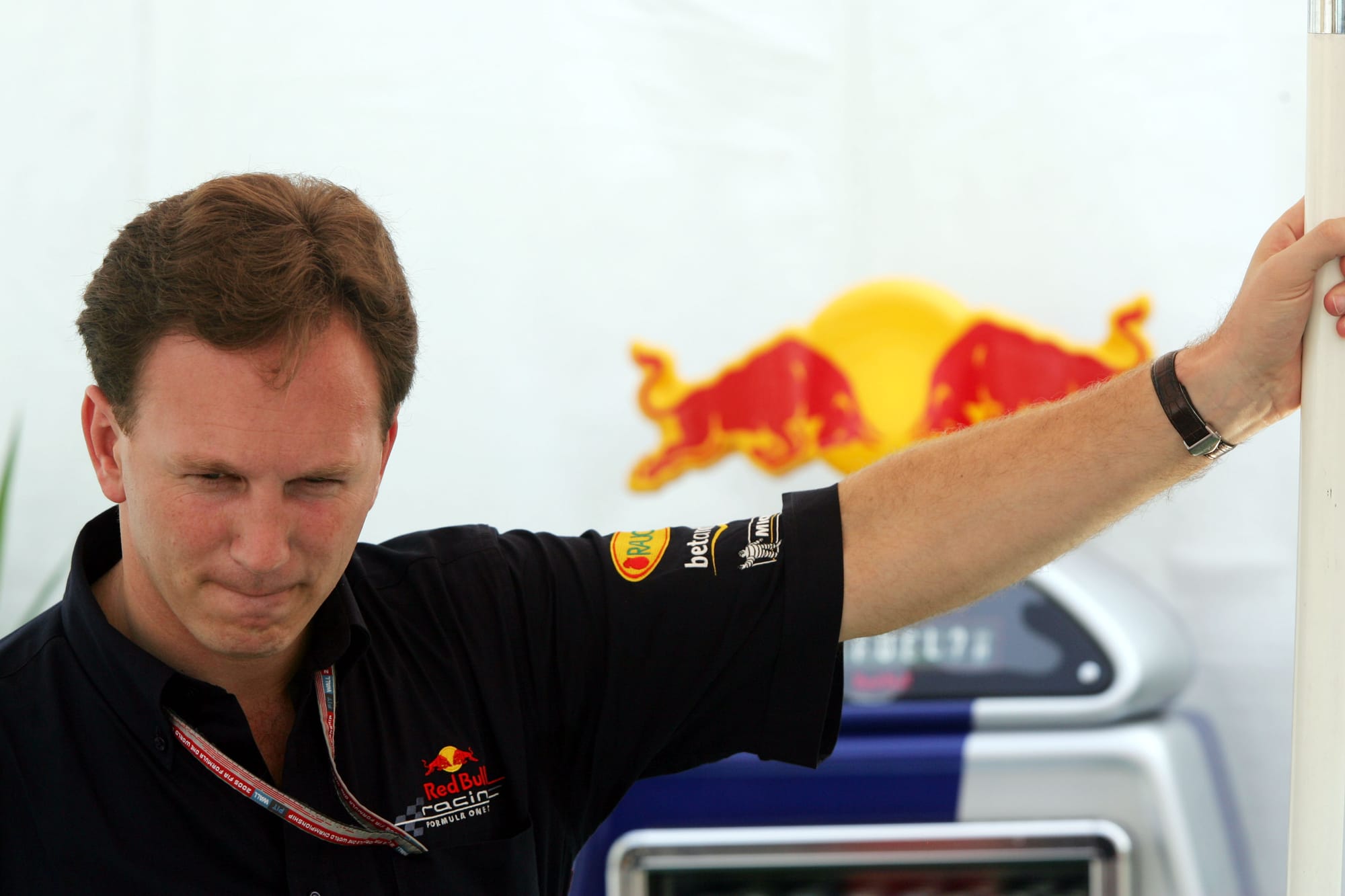
That Milton Keynes base is now a multi-million pound behemoth that is its own industrial estate and incorporates the massive Red Bull Powertrains engine manufacturing facility as well as housing the technology base of the sister RB team.
Horner’s job is no longer that of running a couple of hundred employees and directing operations from the pitwall on a race weekend. He is responsible for a couple of thousand employees and investments worth hundreds of millions of pounds.
He’s effectively become a highly successful executive while continuing in his role of team boss. His personality has given the place its tone and he has retained that even as his role expanded with the team.
Unstitching all that and replacing him like-for-like just isn’t feasible.
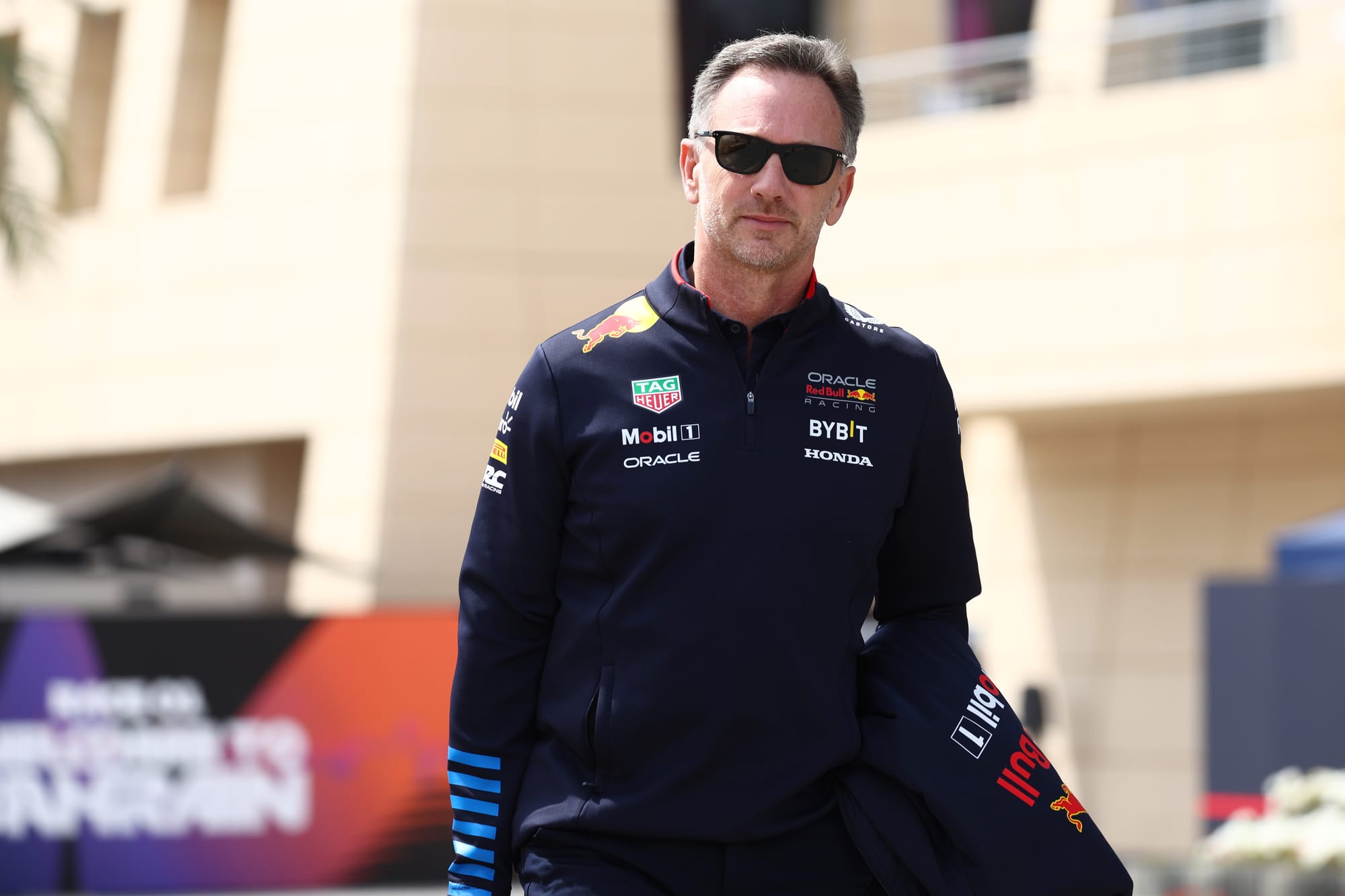
Despite its size, Red Bull Racing remains a fully focused freewheeling race team, fleet-footed and adaptable and quite simple in its structure. The corporate inertia which can easily get in the way of teams of such size has been absent.
The late Red Bull co-owner Dietrich Mateschitz gave Horner the freedom to structure and run it this way, and that has been a crucial component in making it an attractive place for Adrian Newey to work for so long.
But with the Austrian billionaire’s passing in late 2022 there was always going to be a question around whether the team could retain this powerful combination of simple but well-funded.
Racing teams and corporations do not operate to the same set of imperatives. Red Bull has been so successful partly because of its independence from the sort of corporate controls which have prevailed at Ferrari, for example.
Mercedes achieved its greatest success by having a one-third stake in the team which carries its name but leaving the running of it to a racing person.
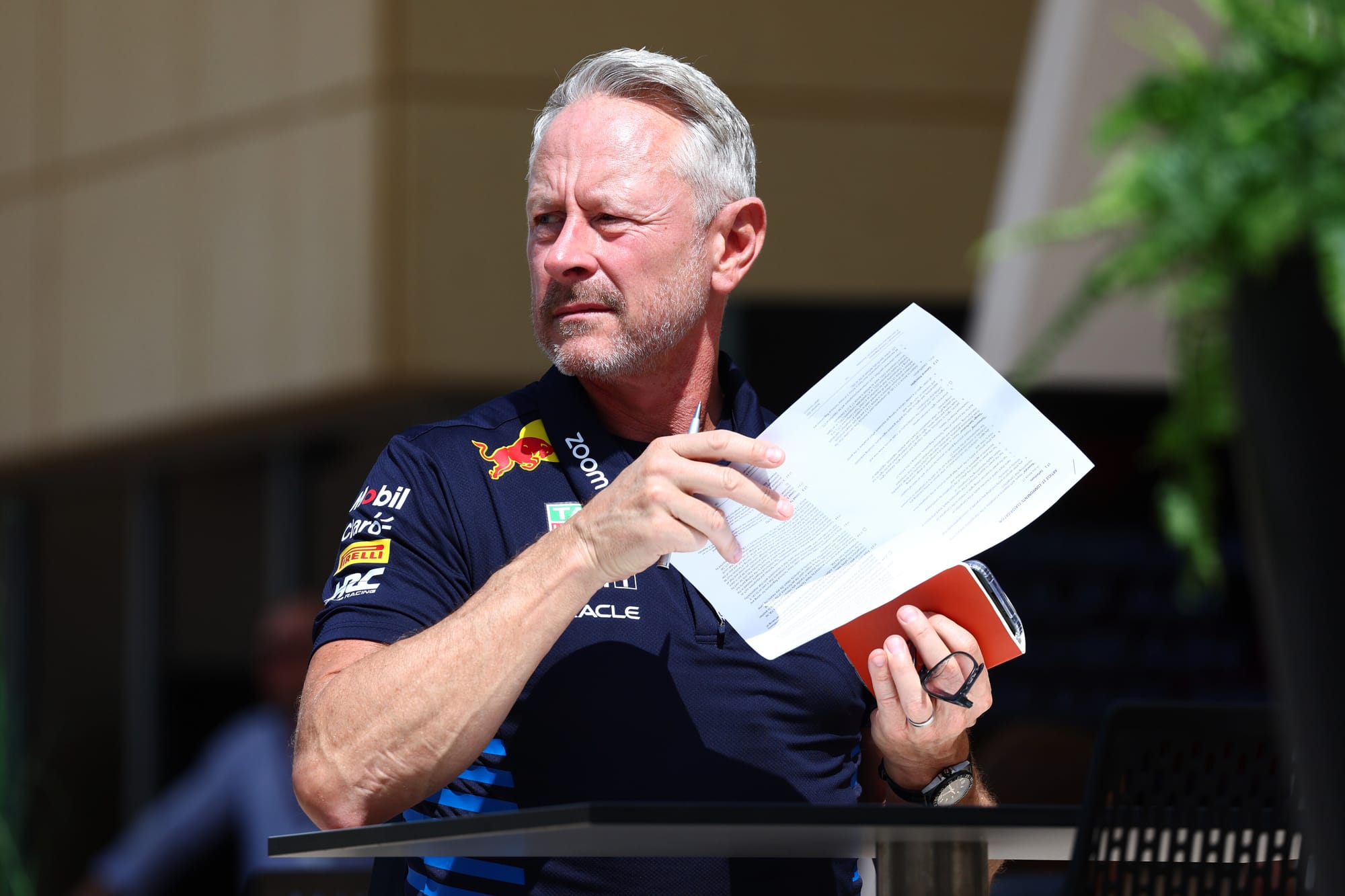
Current Red Bull sporting director Jonathan Wheatley (pictured above) would be a safe pair of hands on the racing side, but taking on all of Horner’s role would not be a fair ask and outside his area of expertise.
The business side of the operation would need to be filled by someone from that world.
It would seem likely that the Austrian corporate parent company, Red Bull GmBH, would be proactive in providing someone to fill that part of the role.
The racing arm would likely be less independent from the corporation than in the Mateschitz-Horner years - and right there is a big red alert to the effective functioning of it, long term.
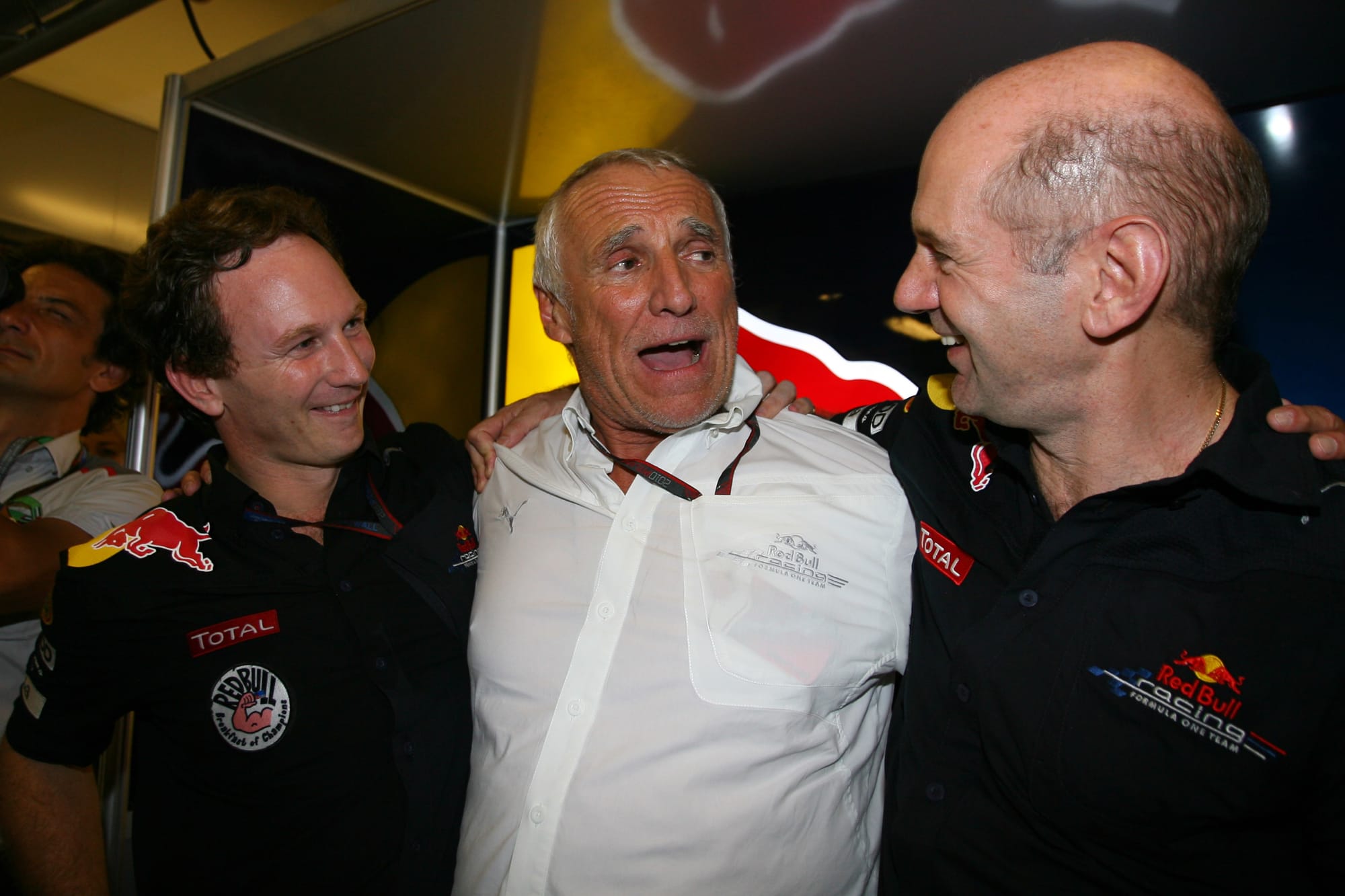
All this has an impact on the quality of personnel who will be attracted to a team longer term - and potentially upon the future of those already there. With such a major upheaval, the distinct possibility of the core technical team being tempted elsewhere has to be considered as feasible.
The talent there is going to be in big demand from rivals looking to take advantage of events should Horner depart.
Not only the technical team - but maybe even Verstappen.
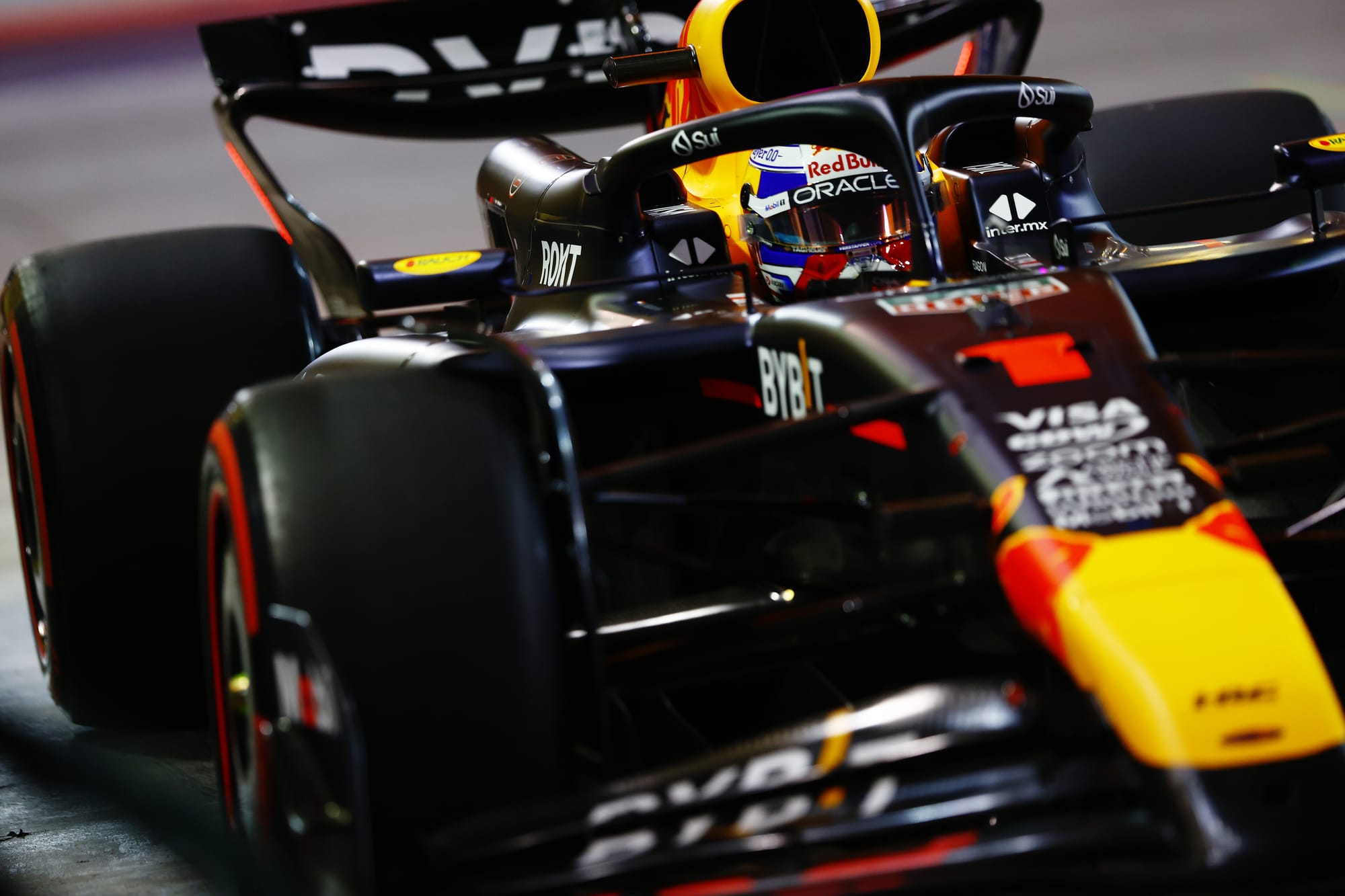
Although contracted there until the end of 2028, rumours are circulating about a possible move to Mercedes as early as next year as Lewis Hamilton’s replacement. This could well be simply a ploy - by whoever is pushing for Horner’s removal - to force someone in Red Bull GmBH to take action or risk losing Verstappen. But in F1 strange things can happen.
The Red Bull-Verstappen marriage has never actually been as close as might be imagined. Not as intimate as Schumacher-Ferrari (where the joins between the interests of the team and the driver were never once apparent) or even Hamilton-Mercedes.
Right from the start, Jos Verstappen used the interest of Red Bull and Mercedes as bargaining leverage. Red Bull was fortunate to secure Max’s services - and through the years of Mercedes dominance there remained the possibility of him jumping ship.
The power dynamic between team and driver has always been unusually skewed towards the driver in this case.
Without either Horner or Verstappen, Red Bull Racing would take an enormous hit.
But what would a Horner-led but Verstappen-less Red Bull look like? If the core technical people were kept in place, it would remain formidable obviously. But replacing Verstappen like-for-like would be impossible.
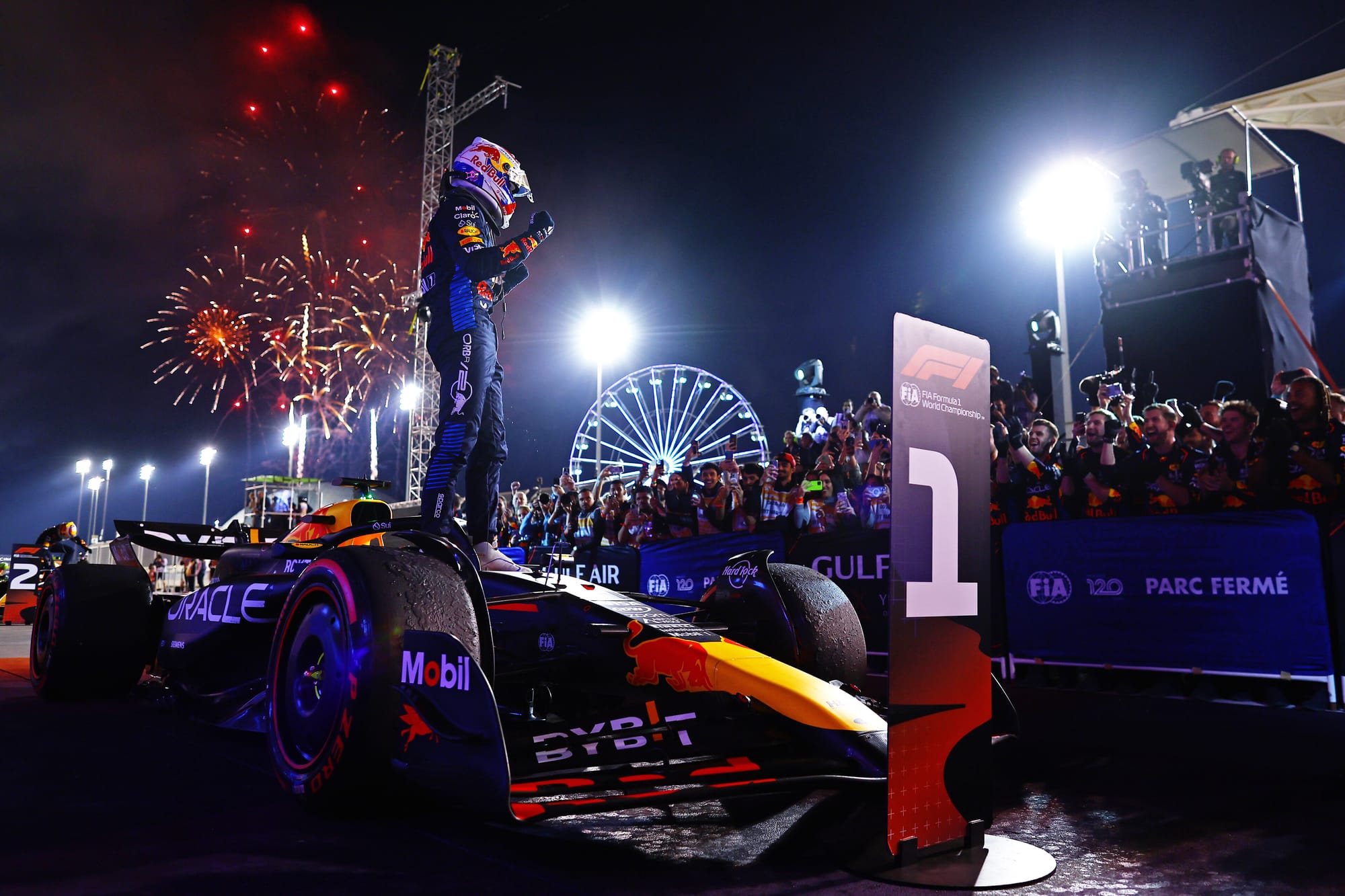
What seems certain now is that Red Bull Racing as was - with the Horner-led team and Verstappen working in unison to crush the opposition - is no more.
It can be expected to dominate for a time regardless, but longer term it’s difficult to see this as anything other than the beginning of the end of its dominance of F1.
